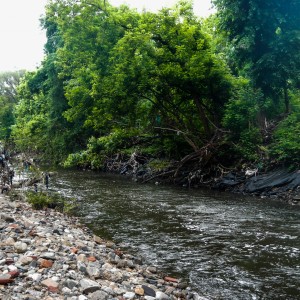The Stream, June 3: Melting Glaciers, Increasing Precipitation Will Lift Himalayan River Flows
More heat in a warming world, more water in South Asia’s mountain rivers – at least through 2050. That conclusion is from a study published this week in the journal Nature Climate Change. Different Himalayan river basins show different hydrological influences. The Indus is more dependent on melting snow and glaciers whereas the Brahmaputra and Ganges are regulated by rainfall, which is expected to increase in this region.
Water Conflict
Residents of a village outside Mexico City protested for the second time in two weeks against plans to pipe their spring water to a rich neighborhood in the capital, Press TV reports. In the earlier protests, two police officers were killed and five villagers arrested.
Polluted Groundwater
Workers digging at the Hanford nuclear site in Washington state struck chromium, the Tri-City Herald reports. The chemical deposit, which was contaminating groundwater that then flowed into the nearby Columbia River, was found 26 meters (85 feet) below the surface. Hanford, a World War II-era plutonium plant, is the U.S. government’s largest and most expensive environmental cleanup project.
Less Polluted Rivers
Britain’s urban rivers are the cleanest in two decades, the BBC reports. Cardiff University research found that more than half of 78 fish, insects, and snails studied had increased in numbers as cities cut the amount of sewage they dumped into water bodies.
The Stream is a daily digest spotting global water trends. To get more water news, follow Circle of Blue on Twitter and sign up for our newsletter.
Brett writes about agriculture, energy, infrastructure, and the politics and economics of water in the United States. He also writes the Federal Water Tap, Circle of Blue’s weekly digest of U.S. government water news. He is the winner of two Society of Environmental Journalists reporting awards, one of the top honors in American environmental journalism: first place for explanatory reporting for a series on septic system pollution in the United States(2016) and third place for beat reporting in a small market (2014). He received the Sierra Club’s Distinguished Service Award in 2018. Brett lives in Seattle, where he hikes the mountains and bakes pies. Contact Brett Walton






Leave a Reply
Want to join the discussion?Feel free to contribute!